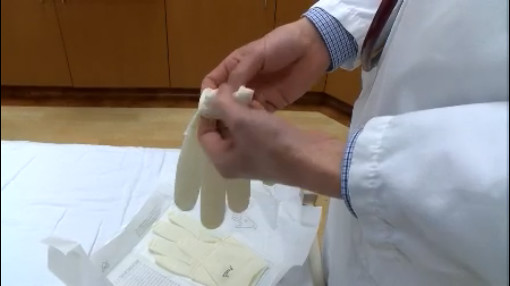-
Tips for becoming a good boxer - November 6, 2020
-
7 expert tips for making your hens night a memorable one - November 6, 2020
-
5 reasons to host your Christmas party on a cruise boat - November 6, 2020
-
What to do when you’re charged with a crime - November 6, 2020
-
Should you get one or multiple dogs? Here’s all you need to know - November 3, 2020
-
A Guide: How to Build Your Very Own Magic Mirror - February 14, 2019
-
Our Top Inspirational Baseball Stars - November 24, 2018
-
Five Tech Tools That Will Help You Turn Your Blog into a Business - November 24, 2018
-
How to Indulge on Vacation without Expanding Your Waist - November 9, 2018
-
5 Strategies for Businesses to Appeal to Today’s Increasingly Mobile-Crazed Customers - November 9, 2018
FDA recommends banning most powdered medical gloves
Citing health risks associated with the use of powdered latex gloves for medical procedures and exams, The Food and Drug Administration has proposed a nationwide ban on the gloves, Stat reported. It stated that the powdered gloves lead to allergic reactions which could be risky. The last time FDA banned a device was in 1983, when it removed prosthetic hair fibers from the regulated marketplace.
Advertisement
The FDA started to look into the negative side effects of powdered gloves nearly 20 years ago in 1997( http://www.fda.gov/medicaldevices/deviceregulationandguidance/guidancedocuments/ucm113316.htm ), but didn’t recommend banning them until now.
Powder in the form of cornstarch is sometimes added to gloves to make them easier for doctors, nurses and other health care professionals to put on and take off. But, note the FDA, there are several reasons why powdered gloves pose health risks.
Dr. Jeffrey Shuren, director of FDA’s Center for Devices and Radiological Health, said the ban is meant to protect patients and healthcare professionals from unknown dangers. The FDA note they are “not aware of any powdered radiographic protection gloves that are now on the market”.
“We actually don’t use latex gloves because of the patients that do have latex allergies and because we are an allergy clinic we are very acutely aware of that, but in general practice we may not know if a patient has latex allergies until we’ve already caused the problem”, Griffith said. The FDA also concluded that a ban on existing medical gloves would not cause a glove shortage at medical facilities or have a serious impact on the economy.
“We maintain our neutral call on the development as we think that the manufacturers are well-positioned given that they have diversified aggressively into nitril gloves in anticipation of the strong demand and a shift towards nitrile gloves”, it opined. Additionally, the agency says the ban would not apply to powders used during manufacturing, so long as only trace amounts (no more than 2 mg of powder per glove) make it into the finished product, reports the Regulatory Affairs Professional Society on raps.org.
But beginning in the late 1990s, the non-powdered alternatives have come to dominate the market, made of various materials, including natural rubber latex, polyvinyl chloride, nitrile and neoprene, according to the federal authorities.
Advertisement
The change is open to public comment for 90 days.





























